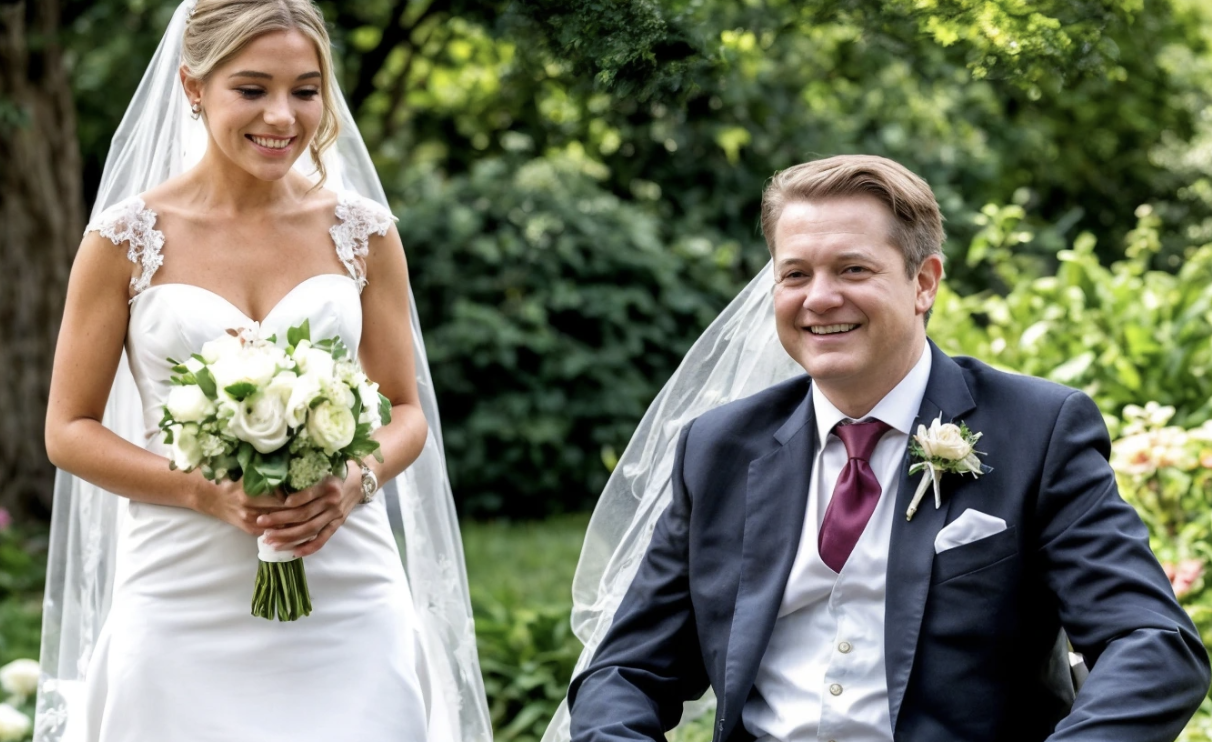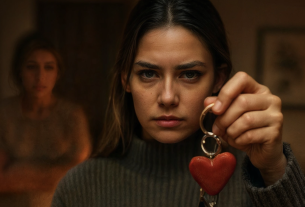When Sofia announced that she was going to marry a man with a disability, her loved ones seemed to lose the power of speech. Her family was in shock, her friends were stunned, and distant relatives gathered for an informal family council as if deciding a matter of national importance. Everyone felt it was their duty to stop the girl. “You’re ruining your life,” “You deserve better,” “Think about how others will perceive this” — these phrases poured in from all sides.
But Sofia, a 27-year-old pharmacist with honors and job offers from the best clinics in the country, remained steadfast. She, who had lived her whole life by others’ rules and tried to meet others’ expectations, chose for the first time not what was “right,” but what was real. And that choice was Daniil — a man in a wheelchair whom society was used to pitying but not respecting.
Not long ago, Daniil was someone to look up to. A coach, athlete, leader of youth projects. Everyone involved in track and field knew his name. But one accident changed his fate. He was returning home when a drunk driver crashed into his car. Daniil survived but lost the ability to walk. The doctors were firm: spinal cord injury — irreversible.
From that day, his life split into “before” and “after.” Instead of training — rehabilitation. Instead of the stands — the silence of hospital corridors. He stopped answering calls, disappeared from society, withdrew into himself. He smiled only out of habit, and at night, as center staff said, he cried as if he had gone back to the moment he heard the diagnosis.
Sofia came to that very center as a volunteer — through a university internship program. At first, she resisted, argued with the coordinator, but eventually agreed. It was there, in the garden, that she first saw Daniil — alone, with a book on his lap, seemingly cut off from the world.
“Hello,” she greeted him. He did not respond.
The next day she returned. Again, he was silent.
But something in that silence caught her. Something in his gaze, his loneliness, in the depth of pain he did not hide. One day she just sat down beside him and quietly said:
“You don’t have to speak. I’ll stay anyway.”
And she stayed. Day after day. Sometimes silently. Sometimes reading favorite poems aloud. Gradually, he began to open up — first with his eyes, then a smile, then short remarks. And then — conversations. A bond formed between them, much deeper than simple attraction.
She learned that he wrote poetry, that he had long dreamed of publishing a collection of stories, that he loved jazz and missed dancing the most. And he realized that before him was not just a bright mind and a beautiful girl — but a person with inner strength, capable of accepting not only his body but his pain.
Their relationship developed quietly, without unnecessary attention. Not because they were hiding, but because they wanted to preserve their space. But such love cannot be hidden.
When Sofia told her family, the reaction was predictable. Her mother locked herself in her room, her father accused her of seeking drama, and her friends began replying less often to her messages. Even her medical colleagues started keeping their distance.
“You’re destroying your life,” they said. “How will you live with someone who can’t stand up on his own?”
Sofia didn’t argue. She simply replied:
“I choose love. Not the kind that judges, but the kind that listens. Not the kind that demands you be someone else, but the kind that accepts me as I am.”
They decided to have the wedding anyway. A small one. Only for those who understood or at least learned not to judge.
On the morning of the ceremony, Sofia’s mother came into her room. No yelling. No reproaches. Just one question…
“Why did you choose him?” her mother asked.
Sofia answered quietly but firmly:
“Because he never asked her to pretend. He loved her real self. And that is more than just words.”
At the wedding, Daniil waited for the bride in a neat cream suit, a cane lying nearby. But no one expected what happened after she appeared.
Sofia entered — radiant, brave, free. And then Daniil… stood up. Slowly, with effort, but he stood. One step. Second. Third.
“I wanted to stand for you at least once,” he said, holding onto the back of a chair. “Even if today remains the only day. You gave me the strength to try.”
Later it turned out he had been quietly doing rehabilitation for many months. He didn’t want to give Sofia false hope. He just wanted to be able to meet her as an equal — as a man worthy to stand beside her.
Today Sofia and Daniil have created a charity foundation dedicated to supporting people with disabilities. They give lectures in schools, rehabilitation centers, and medical institutions. They share their story — not for pity, but for belief. For those who still think disability is the end, and love must be “comfortable.”
When people ask Sofia if she regrets it, she smiles, touches the ring on her finger, and softly answers:
“I didn’t marry a man in a wheelchair.
I married the one who taught me not to fear pain.
The one who gave me the right not to be perfect.
The one who believed in me when I stopped believing in myself.
This is not a story of victimhood. This is a story of victory. Our victory together.”
In a world where love is increasingly measured by convenience, external conformity, and social ratings, their union became an unexpected challenge. A challenge to stereotypes. A challenge to fears. A challenge to anyone who still thinks a man in a wheelchair cannot be a support, a protector, a beloved.
Can a person with a disability be a strong partner? Can love overcome society’s conventions and expectations?
Yes. It can. And Sofia and Daniil don’t just live life — they live the proof every day.
Now a question for you:
How do you feel about such couples? Can you imagine that love doesn’t have to be “perfect” to be real?


